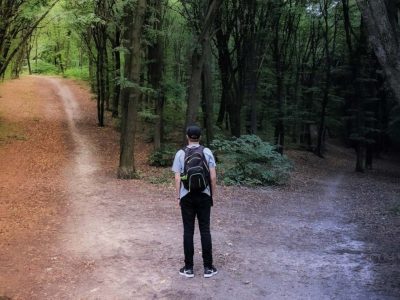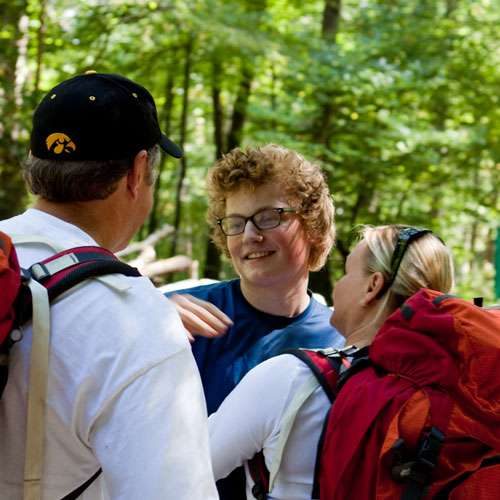For as long as I can remember, I have always felt a gravitational pull towards Africa, and I believe the universe puts you where you need to be if you are still enough to listen. Several years ago, I was invited to be a part of a small research project that was looking for an art therapist to do trauma-based art therapy with ex-child soldiers in the Gulu District of Northern Uganda.
The project grew out of another unrelated research project the previous summer, when the research team had innocently given village children paper and crayons to use while they waited. Most every child drew a violent, trauma-filled drawing, and the research team did not know what to do or how to help. They decided that they would find an art therapist and develop a research project that looked at whether creating art was healing.
Art as a universal language
I spent two summers in Uganda. The boys and girls that I worked with were 14-19 years old but when they were kidnapped and forced to be child-soldiers, they were as young as 7. I did not speak Acholi, but art is a universal language, so the language barrier was never an issue. What proved more difficult was teaching them how to use the art materials because they had never seen such things.
I went to different villages, as well as a boarding school for ex-child soldiers. I facilitated group art therapy every day. I will never forget the first therapy group. The kids were given the directive to “draw a day that you’ll never forget.” I choose this directive specifically to start with because it provided built-in safety if they did not want to talk about what happened, they could draw anything they wanted– but EVERY child drew the night they were kidnapped and forced to kill their parents.
An Influential Experience
This experience has influenced my work in many ways. Most profoundly would have to be letting go of any preconceived notion of what someone needs or feels. That may sound pretty obvious for someone who is supposed to be a therapist but when you leave the country and work with an entirely different culture, I had to learn that lesson the hard way. In the West, we are all about the individual, at the expense of the community, and we have lost patience for our elderly because they can’t produce quick enough.
In Africa, the elders are respected and revered. For them, it is all about the community at the expense of the individual. I went there wanting them to process what happened to them because that is what I believe to be healing. The elders in the villages wanted the kids “to just forget what happened” and not talk about the war at all. So, I left Africa questioning whether I did more harm than good. At the end of the day, I have to believe that processing our trauma is healthy and necessary. What that experience taught me was to be curious, provide the container, and listen for the story.
Helping Teens at Trails Carolina
I use a couple different approaches when working with kids at Trails who experience trauma. These approaches include:
- Cognitive-Behavioral Therapies: This helps teach stress management and relaxation skills to cope with unpleasant feelings. Cognitive Behavioral Therapies also help correct distorted ideas of what happened and why because so many of these kids feels like it was their fault.
- Creating a trauma narrative: Forming a trauma narrative about what happened is helpful because the retelling of the story helps master painful feelings and works towards resolving the impact it had on their lives.
- Art therapy: It takes a lot of effort for the brain to deal with trauma because the traumatized brain is constantly on high alert. Art therapy helps because a picture can tell a story about an individual’s internal life that isn’t accessible in words.
Understanding the symptoms of trauma
The impact of a traumatic experience will impact a teen in a very individualized way to differing degrees of severity and is influenced by their level of developmental response and resources available to support them.
Short-term symptoms may include:
- separation problems
- decrease in initiative or confidence
- changes in thinking/learning
- emotional or behavioral changes
- nightmares.
Longer term symptoms may include:
- Anxiety
- Depression
- Self-harm
- Decrease in school performance
- Anger
- Social isolation
- Sleep disturbance
- Substance use.
Trails Carolina Can Help
Trails Carolina, a wilderness therapy program for teens ages 10-17, helps young people struggling with behavioral and emotional challenges such as trauma, depression, anxiety, defiance, and technology addiction.
About the Author
Tai Kulenic is a Primary Therapist at Trails Carolina and a Board Certified Registered Art Therapist. Before joining the Trails team, she spent over 13 years working with children and adolescents in various therapeutic settings, including outpatient, inpatient psychiatric hospitals, crisis intervention, and private practice. Tai believes that healing is an individual phenomenon and that self-understanding and acceptance is essential in all situations.
Get started today
Contact us today to learn how Trails Carolina can help your family
Trails saved my daughter’s life. Amanda is an amazing human and a brilliant therapist. I am so grateful to her, Science Steve, and the other wonderful people who could reach my daughter at a time when I could not.
Margot Lowman August 2022
Great life changing experience for our son. After becoming addicted to gaming during covid he was very depressed. At Trails he experienced the wilderness, Science Steve, learning survival skills and top notch therapy and support etc… I highly recommend! This gave our son and our family a renewed family bond full of love and excitement about his bright future.
Winnifred Wilson July 2022
Outstanding clinical work and superb staff! There’s a great culture at this company and it shows with how they engage with families/clients.
Kristin Brace June 2022
Discover If Trails Is The Right Program For Your Child
Take our short online assessment and help us better understand how we can help your family.




